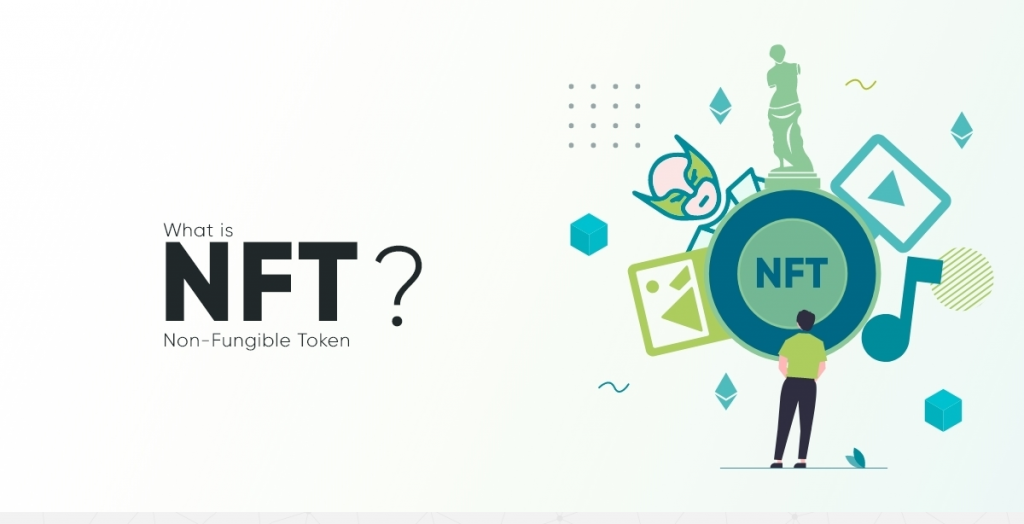CryptoCurrency- An Introduction to the CryptoWorld
Any kind of money that exists digitally or virtually and uses cryptography to safeguard transactions is known as cryptocurrency. Cryptocurrencies use a decentralized mechanism to track transactions and create new units rather than a central body to issue or regulate them. With cryptocurrency, transactions are verified digitally without the use of banks. Anyone, anyone can make and receive payments using this peer-to-peer system. Cryptocurrency payments only exist as digital entries to an online database that describe specific transactions, not as actual physical money that is carried around and exchanged in the real world. A public ledger keeps track of all transactions including cryptocurrency money transfers. Digital wallets are used to store cryptocurrency. Due to the fact that transactions are verified using encryption, cryptocurrency has earned its moniker. This means that the storage, transmission, and recording of bitcoin data to public ledgers all entail sophisticated code. Encryption’s goal is to offer security and protection.
Cryptocurrencies can be created through mining or bought from exchanges. Not all e-commerce websites support cryptocurrency transactions. In actuality, retail transactions hardly ever employ cryptocurrencies, not even well-known ones like Bitcoin. Cryptocurrencies are now widely used as trading instruments thanks to their increasing value. They are also utilized, albeit in a limited capacity, for international transfers. A distributed public ledger known as blockchain, which is updated and maintained by currency holders, is the foundation of cryptocurrencies. Through a process known as mining, which employs computer power to solve challenging mathematical problems, units of Bitcoin are created. Additionally, users have the option of purchasing the currencies from brokers, then storing and spending them in digital wallets. When you hold cryptocurrencies, you don’t actually own anything. What you possess is a key that enables you to transfer a record or a unit of measurement between people without the use of a reliable third party. Despite the fact that Bitcoin has been available since 2009, the financial applications of cryptocurrencies and blockchain technology are constantly developing, and more are anticipated in the future.
Blockchain, as its name suggests, is simply a network of interconnected blocks or an electronic ledger. A group of transactions are contained in each block, and each member of the network has independently validated each transaction. It is nearly impossible to fabricate transaction histories since every new block that is generated must first be checked by each node before it can be confirmed. The complete network of a single node, or computer, holding a copy of the ledger, must concur on the contents of the online ledger. According to experts, blockchain technology can benefit many different businesses, including supply chains, as well as procedures like online voting and crowdfunding. Financial organizations are experimenting with the use of blockchain technology to reduce transaction costs by speeding payment processing, including JPMorgan Chase & Co. (JPM).
Governments or financial institutions are the sources of fiat currency power. The Federal Reserve, for instance, guarantees every dollar bill. However, neither a public nor a private entity backs cryptocurrencies. Making a case for their legal standing in various financial jurisdictions throughout the world has thus been challenging. It doesn’t help that cryptocurrencies have mostly operated outside of the majority of the current financial system. For their use in regular transactions and trade, cryptocurrencies’ legal status has repercussions. The Financial Action Task Force (FATF), which advocates for AML compliance, suggested in June 2019 that wire transfers of cryptocurrencies be subject to the rules of its travel rule. Only two nations in the world—El Salvador and the Central African Republic—have so far recognized Bitcoin as a legitimate form of payment. The regulation of cryptocurrencies in the rest of the globe differs per country.

The European Union has legalized cryptocurrencies. The use of cryptocurrencies in derivatives and other products will require them to be recognized as “financial instruments.” The Markets in Crypto-Assets (MiCA) legislation, which defines guidelines for businesses or vendors offering financial services utilizing cryptocurrencies, was published by the European Commission in June 2021. Bitcoin is recognized as legal property under the Payment Services Act of Japan. Exchanges that deal in cryptocurrencies in the nation are required to gather client data and wire transfer information. Within its boundaries, China has outlawed cryptocurrency trades and mining. According to a report, India is developing a framework for cryptocurrency.
Due to large investor losses as a result of fraud, hacks, and vulnerabilities, cryptocurrencies have developed a reputation as unstable investments. Although the underlying encryption is often secure, new users may be seriously hurt by the technical complexity of utilizing and keeping crypto assets.
- User risk: Unlike traditional finance, a bitcoin transaction cannot be stopped or reversed after it has been received. According to some estimations, a fifth of all bitcoins are currently inaccessible because of forgotten passwords or invalid transmission addresses.
- Regulatory risks: Many governments are trying to regulate cryptocurrencies as securities, currencies, or both, but their exact status is still up for debate. A sudden regulatory crackdown can make it challenging to sell cryptocurrencies or result in a price decline across the board.
- Counterparty risks: A lot of traders and investors trust exchanges or other custodians to keep their cryptocurrency safe. One’s entire investment could be lost in the event of a theft or loss by one of these third parties.
- Programming risks: To regulate the transfer of customer deposits, several lending and investment platforms use automated smart contracts. By using one of these platforms, an investor accepts the possibility that a flaw or vulnerability in the programs could result in the loss of their investment.
- Market Manipulation: In the bitcoin industry, market manipulation is still a major issue, and certain exchanges have been accused of manipulating prices or engaging in customer-against trading.
The goal of introducing cryptocurrencies was to completely overhaul the financial system. There are sacrifices, though, as there are with every revolution. There are several gaps between the theoretical ideal of a decentralized system with cryptocurrencies and its actual execution at the current stage of cryptocurrency development. Using cryptocurrencies is a new way to think about money. They vow to streamline the current financial system to make it more efficient and affordable. Existing monetary systems are decentralized by their technology and architecture, enabling parties to transactions to exchange value and money without the need for third parties like banks.
The leading two cryptocurrencies by market capitalization, Bitcoin and Ethereum, have already been declared not to be securities by the SEC. SEC Chair Gary Gensler indicated in September 2022 that he considers cryptocurrencies to be securities and has directed SEC employees to start collaborating with crypto creators to register their crypto. He added that he wasn’t speaking on behalf of the SEC and that he was only speaking for himself. In the spirit of getting ahead, he advised anyone just entering the cryptocurrency market to register their cryptocurrency right away because “it’s much less expensive to do so from the start.”
The bottom line is Digital assets that are protected by cryptography are called cryptocurrencies. They are quite speculative because they are a relatively new technology, therefore before investing, it is crucial to know the dangers associated.









